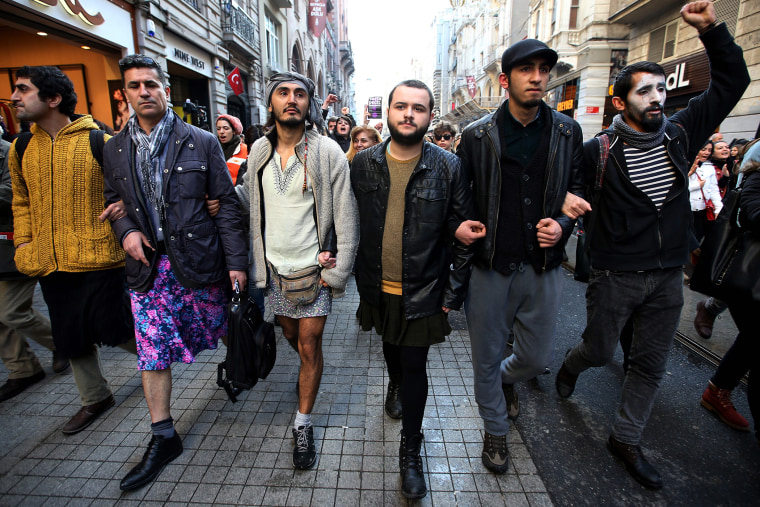Men in Turkey are fighting for women's rights by wearing miniskirts in public, following the death of a 20-year-old college student who reportedly was the victim of a sexual assault.
Earlier this month, Ozgecan Aslan was abducted and killed for allegedly trying to prevent a bus driver from raping her, NBC News reported. While traveling in southern Turkey on Feb. 11, she allegedly was the remaining passenger on the bus when the driver reportedly veered into the woods and tried to rape her. Days later, her body was found burned and dumped in a riverbed.
RELATED: An alarming finding on college sex assaults
Officials released details of the incident to the Turkish media, which reported that Aslan's attacker stabbed her and hit her with an iron bar when she tried to resist rape. Authorities have arrested a 26-year-old minivan driver and two accomplices, reportedly his father and a friend.
Thousands of women in cities across Turkey posted to Twitter more than three million times with the hashtag "#OzgecanAslan," wearing all black in mourning for Aslan and to raise awareness about violence against women. More recently, men in Turkey and neighboring Azerbaijan walked outside in miniskirts. Many of them have posted images to social media platforms using "#ozgecanicinminietekgiy," which roughly translates to "wear a miniskirt for Ozgecan." The movement went viral shortly after it began last week.
Turkish President Recep Tayyip Erodgan vowed to follow Aslan's case personally. He, along with his wife, reportedly called Aslan's family on the day of her funeral. But just four months ago, Erodgan was accused of sexism after he said women and men couldn't be treated equally "because it goes against the laws of nature." He added that biological differences prevent men and women from performing the same tasks, such as manual labor.
There was a surge in violence against women in Turkey last year, with a 31% increase from 2013, according to human rights monitor Bianet. In 2011, a report by Humans Rights Watch analyzed domestic violence in Turkey and concluded that laws and the country's officials leave room for some women to be unprotected from violence. Court-issued protection orders and emergency shelters, for example, aren't available for many abuse victims because of gaps in the law and authorities' neglect on enforcing the rules.
